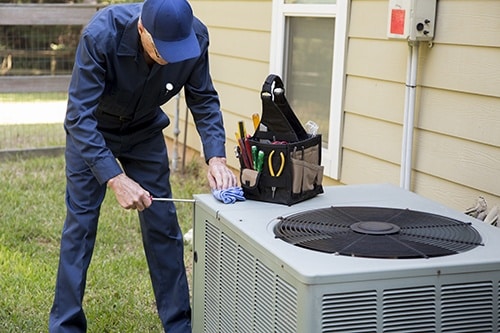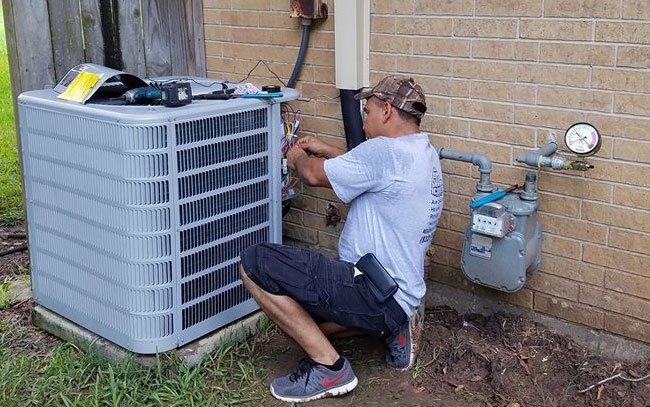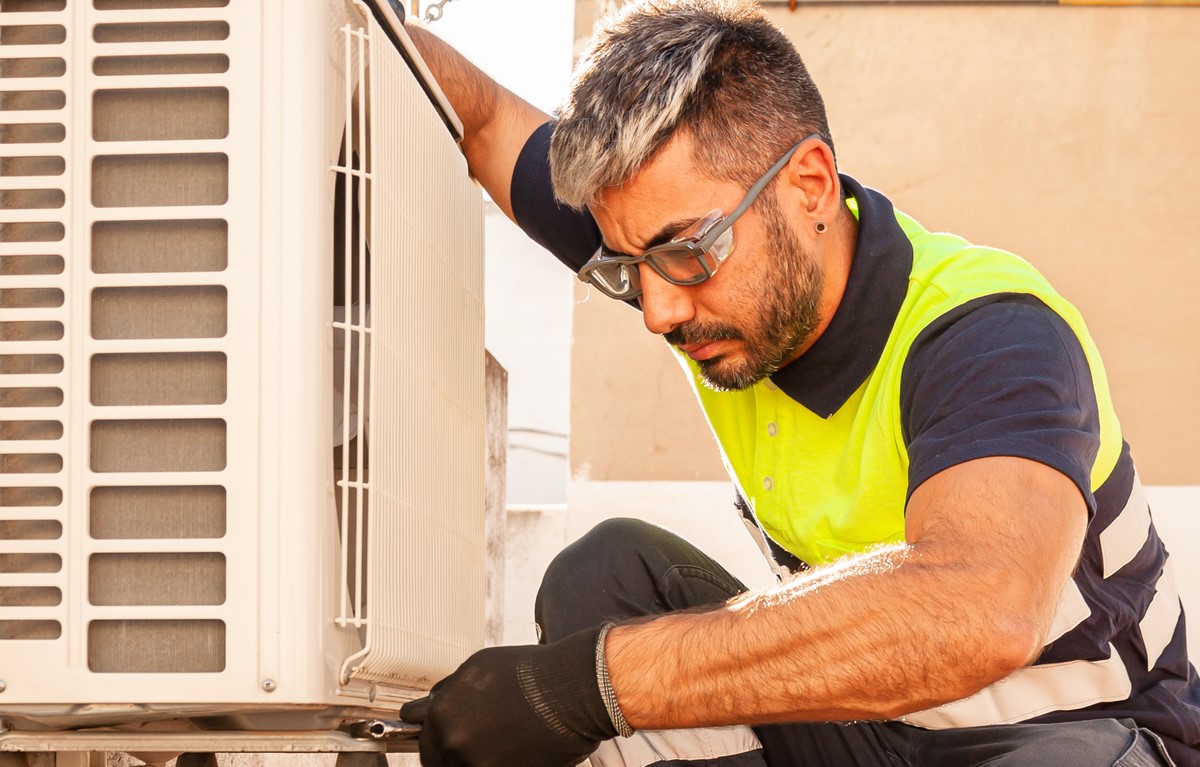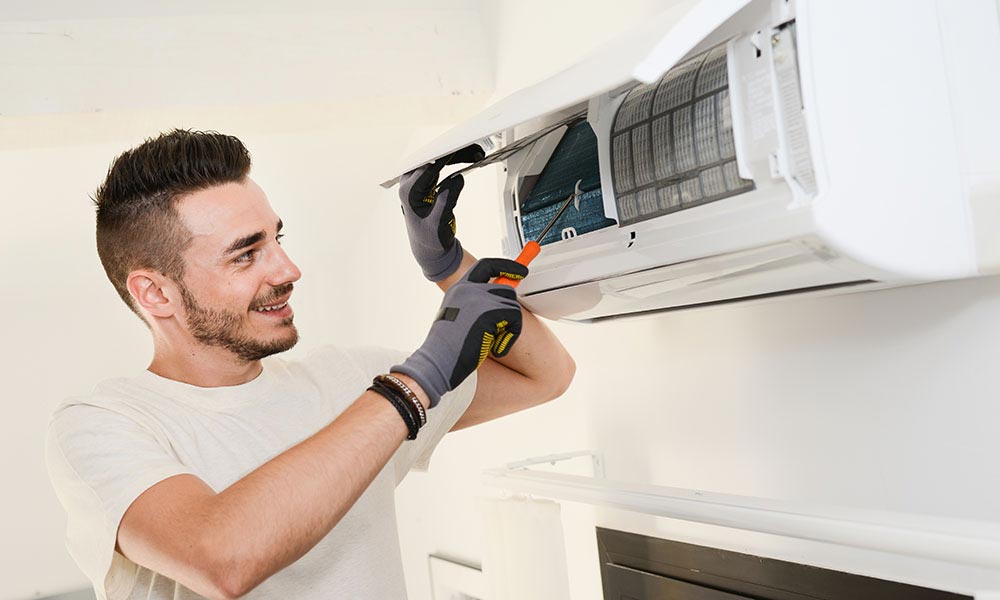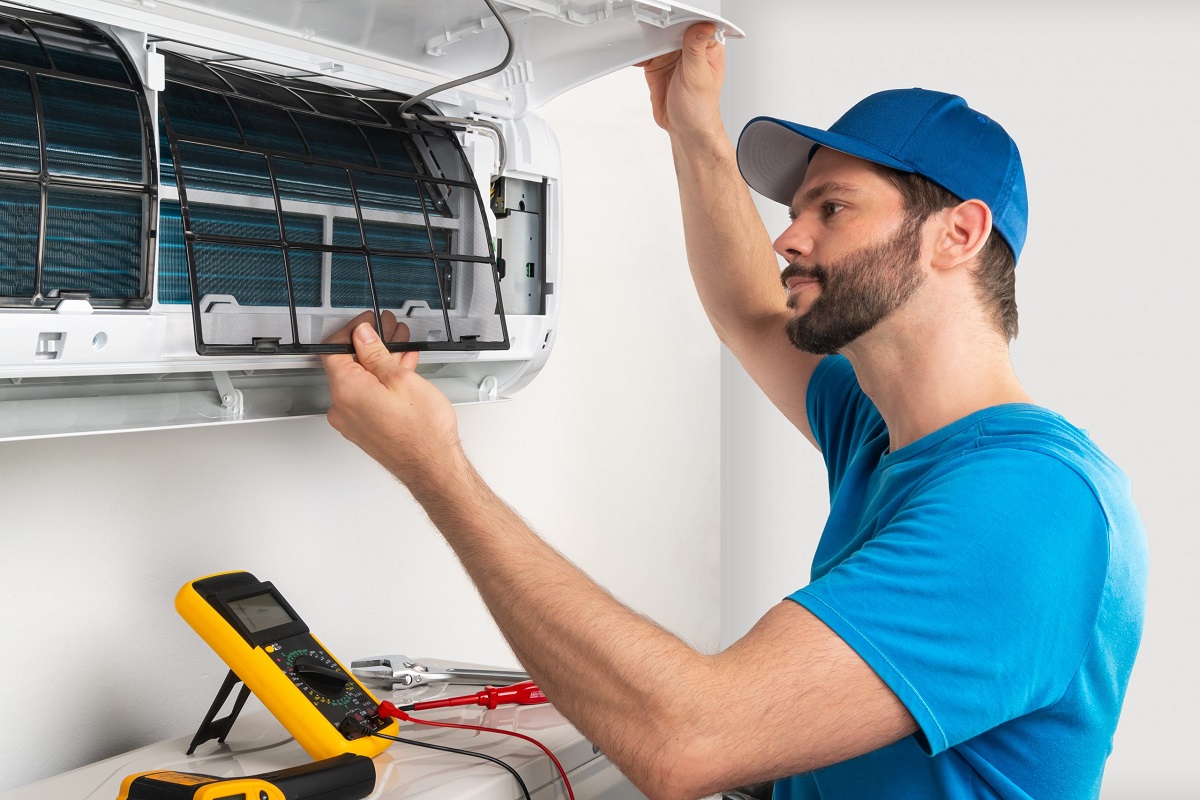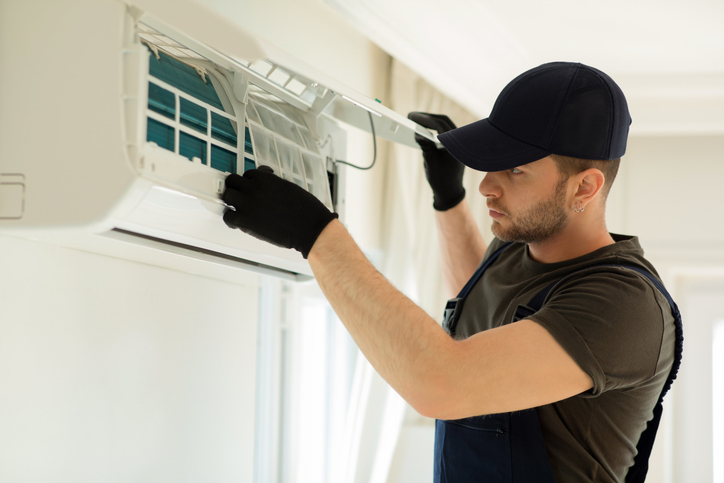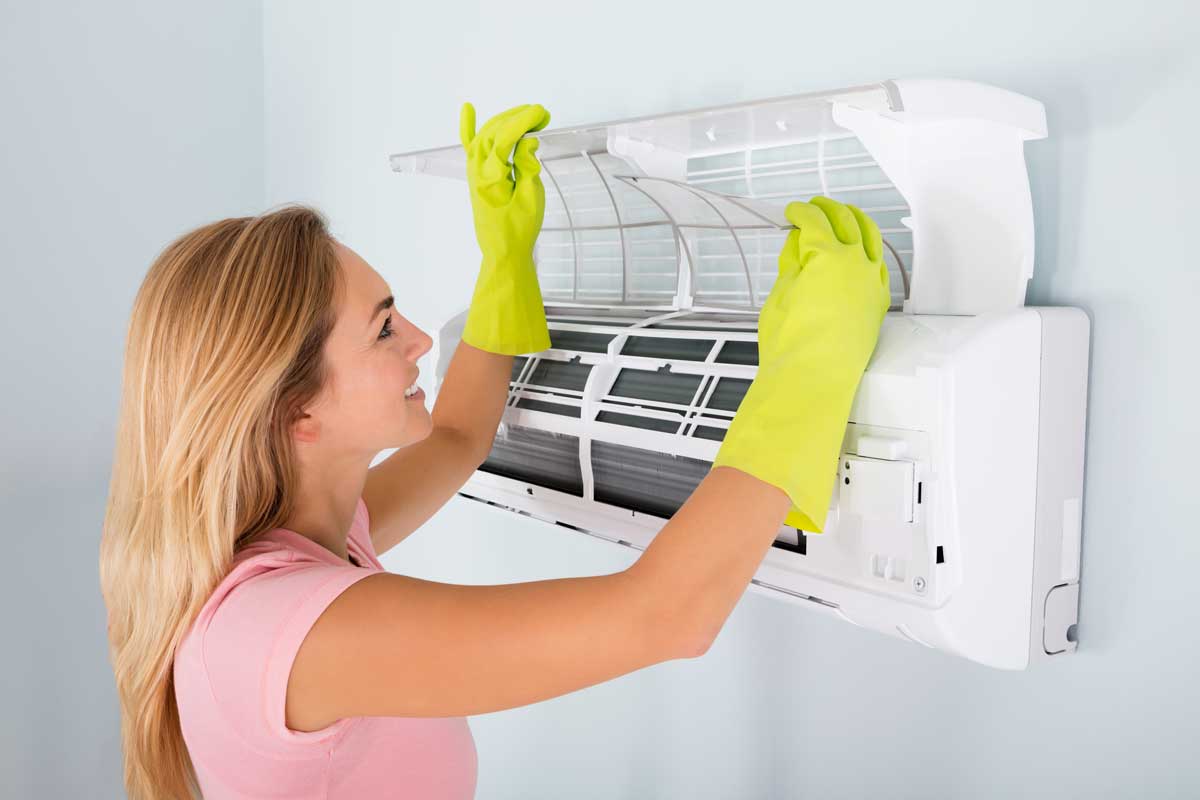How Often Should You Maintenance Your Ac

One of the most frustrating experiences for homeowners is when their air conditioner stops working efficiently, especially during the hottest days of summer. You crank down the thermostat, but the house remains stubbornly warm, and your energy bills skyrocket. Often, this isn't a sign of a catastrophic failure but rather a consequence of neglecting regular AC maintenance. The good news is that many common AC problems can be prevented or easily addressed with a little proactive care.
How Often Should You Maintain Your AC?
The ideal frequency for AC maintenance depends on several factors, including the age of your unit, the climate you live in, and how often you use your AC. However, a general guideline is to perform basic maintenance at least twice a year – once in the spring before cooling season begins and again in the fall after cooling season ends. For homes in particularly dusty or humid environments, or those with older AC units, more frequent maintenance might be necessary.
Spring Maintenance: Preparing for Summer
The spring check-up is crucial for ensuring your AC is ready to handle the demands of summer. Here's a step-by-step guide:
- Power Down: Always begin by turning off the power to your AC unit at the breaker box. This is essential for your safety.
- Inspect the Outdoor Unit: Walk around the outdoor condenser unit. Look for any obvious damage, such as bent fins, debris accumulation, or overgrown vegetation.
- Clean the Outdoor Unit: Use a garden hose (not a pressure washer) to gently spray away any dirt, leaves, or debris from the outside of the unit. Be careful not to bend the fins. If the fins are bent, you can try to straighten them with a fin comb, available at most hardware stores.
- Clear the Area Around the Unit: Ensure there's at least 2-3 feet of clearance around the unit on all sides. This allows for proper airflow. Trim back any bushes or plants that are encroaching on the unit.
- Inspect the Indoor Unit: Locate the indoor unit, usually in a furnace room or closet. Check for any signs of water leaks or unusual noises.
- Change the Air Filter: This is arguably the most important maintenance task. A dirty air filter restricts airflow, making your AC work harder and less efficiently. Replace the filter with a new one of the correct size and MERV rating. Check your owner's manual for recommendations.
- Clean the Evaporator Coil (If Accessible): The evaporator coil is located inside the indoor unit and can accumulate dust and grime. If you're comfortable doing so, you can carefully clean the coil with a soft brush and a coil cleaner specifically designed for AC units. Be very gentle as the fins on the evaporator coil are easily damaged. If you're not comfortable cleaning the coil yourself, it's best to leave this to a professional.
- Check the Condensate Drain Line: The condensate drain line carries away moisture that condenses during the cooling process. A clogged drain line can lead to water leaks and mold growth. Locate the drain line (usually a PVC pipe) and check for any blockages. You can try to clear the line by pouring a cup of white vinegar down the drain or using a wet/dry vacuum to suck out any debris.
- Test the System: Turn the power back on to the AC unit and set the thermostat to cooling mode. Observe the unit for a few minutes to ensure it's operating correctly. Listen for any unusual noises and check that the air coming from the vents is cool.
Fall Maintenance: Preparing for Winter or Inactivity
The fall maintenance check-up prepares your AC for a period of inactivity or helps it transition to a heating role (for heat pumps). Here’s what to do:
- Power Down: As always, start by turning off the power to your AC unit at the breaker box.
- Clean the Outdoor Unit (Again): Remove any leaves, twigs, or debris that may have accumulated around the outdoor unit during the fall.
- Cover the Outdoor Unit (Optional): If you live in an area with harsh winters, you may want to cover the outdoor unit with a waterproof cover to protect it from snow, ice, and debris. However, do not completely seal the unit, as this can trap moisture and lead to corrosion. A breathable cover is best.
- Change the Air Filter (Again): Replace the air filter one last time before the heating season begins.
- Inspect the Ductwork: Visually inspect the accessible ductwork for any leaks or damage. Seal any leaks with duct tape or mastic sealant.
- Check the Heat Pump Function (If Applicable): If you have a heat pump, test the heating function to ensure it's working correctly.
DIY Troubleshooting: Common AC Problems and Fixes
Before calling a professional, there are a few simple troubleshooting steps you can take to address common AC problems:
- AC Won't Turn On:
- Check the Thermostat: Ensure the thermostat is set to cooling mode and the temperature is set lower than the current room temperature.
- Check the Breaker: Make sure the circuit breaker for the AC unit hasn't tripped. Reset the breaker if necessary.
- Check the Power Switch: Some AC units have a separate power switch located near the unit. Make sure this switch is turned on.
- Check the Air Filter: A severely clogged air filter can sometimes prevent the AC from turning on. Try replacing the filter.
- AC is Blowing Warm Air:
- Check the Thermostat: Double-check that the thermostat is set to cooling mode and not heat.
- Check the Air Filter: A dirty air filter is the most common cause of this problem. Replace the filter immediately.
- Check the Outdoor Unit: Make sure the outdoor unit is not blocked by debris.
- Check for Ice Buildup: Inspect the evaporator coil for ice buildup. If you see ice, turn off the AC and allow the ice to melt completely. Once the ice is melted, try turning the AC back on. If the ice buildup recurs, it could indicate a refrigerant leak or other serious problem.
- AC is Making Unusual Noises:
- Rattling: Could indicate loose parts. Check the outdoor unit for loose screws or panels. Tighten them if necessary.
- Squealing: Could indicate a worn-out belt. This typically requires professional replacement.
- Humming: Could indicate a problem with the compressor or fan motor. This usually requires professional diagnosis and repair.
- AC is Leaking Water:
- Check the Condensate Drain Line: A clogged condensate drain line is the most common cause of water leaks. Try clearing the line as described above.
- Check the Air Filter: A dirty air filter can sometimes cause the evaporator coil to freeze, leading to water leaks.
When to Call a Professional
While many AC problems can be addressed with simple DIY maintenance and troubleshooting, there are certain situations where it's essential to call a qualified HVAC technician. Do not attempt repairs that involve refrigerant handling, electrical components beyond basic checks, or any complex mechanical issues. Here are some signs that you need professional help:
- Refrigerant Leaks: Refrigerant is a hazardous substance, and only licensed technicians are qualified to handle it safely. Signs of a refrigerant leak include hissing noises, ice buildup on the evaporator coil, and a persistent lack of cooling.
- Electrical Problems: If you suspect an electrical problem with your AC unit, such as a burning smell or sparking wires, immediately turn off the power and call a professional. Electrical repairs can be extremely dangerous.
- Compressor Issues: The compressor is the heart of the AC unit, and repairs are complex and expensive. If you suspect a problem with the compressor, such as unusual noises or a lack of cooling, it's best to call a professional.
- Frozen Evaporator Coil: While you can try to melt the ice on a frozen evaporator coil, recurring freezing is a sign of a more serious problem, such as a refrigerant leak or airflow obstruction.
- Ductwork Problems: Extensive ductwork repairs or replacements require specialized knowledge and equipment.
- You're Not Comfortable: If you're uncomfortable performing any of the maintenance or troubleshooting steps described above, it's always best to err on the side of caution and call a professional.
The Benefits of Regular AC Maintenance
Investing in regular AC maintenance may seem like an unnecessary expense, but it can actually save you money in the long run. Here are some of the benefits:
- Improved Energy Efficiency: A well-maintained AC unit will operate more efficiently, using less energy to cool your home. This translates to lower energy bills.
- Extended Lifespan: Regular maintenance can help extend the lifespan of your AC unit, preventing costly breakdowns and replacements.
- Improved Air Quality: A clean AC unit will circulate cleaner air throughout your home, reducing allergens and pollutants.
- Reduced Repair Costs: Catching small problems early can prevent them from escalating into more serious and expensive repairs.
- Peace of Mind: Knowing that your AC unit is in good working order can provide peace of mind, especially during the hottest days of summer.
By following these simple maintenance tips and troubleshooting steps, you can keep your AC unit running efficiently and effectively for years to come. Remember to prioritize safety and call a professional when necessary. A little proactive care can go a long way in ensuring your home stays cool and comfortable all summer long.
